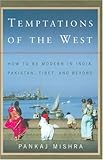ELISABETH BUMILLER “Remembering Afghanistan’s Golden Age” http://www.nytimes.com/2009/10/18/weekinreview/18bumiller.html
アフガニスタンの首都カブールはかつて「中央亜細亜の巴里」と呼ばれていた;
But as President Obama debates whether to send more American troops to Afghanistan, and whether, more pointedly, he might be sending them down a black hole of civic hopelessness, American and Afghan scholars and diplomats say it is worth recalling four decades in the country’s recent history, from the 1930s to the 1970s, when there was a semblance of a national government and Kabul was known as “the Paris of Central Asia.”Afghans and Americans alike describe the country in those days as a poor nation, but one that built national roads, stood up an army and defended its borders. As a monarchy and then a constitutional monarchy, there was relative stability and by the 1960s a brief era of modernity and democratic reform. Afghan women not only attended Kabul University, they did so in miniskirts. Visitors — tourists, hippies, Indians, Pakistanis, adventurers — were stunned by the beauty of the city’s gardens and the snow-capped mountains that surround the capital.
アフガニスタンの躓きは1970年代後半の社会主義政権の内ゲバによる混乱と蘇聯の侵攻、それに抵抗する米国やアラブ諸国に支援されたイスラーム・ゲリラの出現から始まるといっていいだろう。つまり、アフガニスタンが現在のようになったことに対しては米国の責任が大なのである。
In 1979, the Soviets invaded, occupied Afghanistan for the next decade and were finally driven out by American-backed mujahedeen fighters, some of whom went on to form the Taliban, an Islamic student militia, which took control in Kabul in 1996. The Taliban in turn were toppled by the Americans in 2001, but fighting continued.And by the end of the 1970s, many of the educated elite had fled and resettled across Europe, Asia and the United States. Gone with them was the promise of those earlier decades, when Kabul solicited foreign aid from both Washington and Moscow that brought in electricity, dams and irrigation, and when a young Parliament was trying out a fledgling democracy.
Pankaj Mishra Temptations of the West*1には、アフガニスタンの社会主義政権崩壊、(蘇聯軍撤退後の)タリバン擡頭の背景としての都市−農村格差についての言及あり(pp.267-272)。また、良かった頃のアフガニスタンに詳しい日本人としては松浪健四郎*2がいるか。

Temptations of the West: How to Be Modern in India, Pakistan, Tibet, And Beyond
- 作者: Pankaj Mishra
- 出版社/メーカー: Farrar Straus & Giroux
- 発売日: 2006/06/01
- メディア: ハードカバー
- クリック: 4回
- この商品を含むブログ (10件) を見る
See also
David W. Dunlap AND Darcy Eveleigh “From the Archive: Eyes, as Well as Ears” http://lens.blogs.nytimes.com/2009/10/17/archive-7/